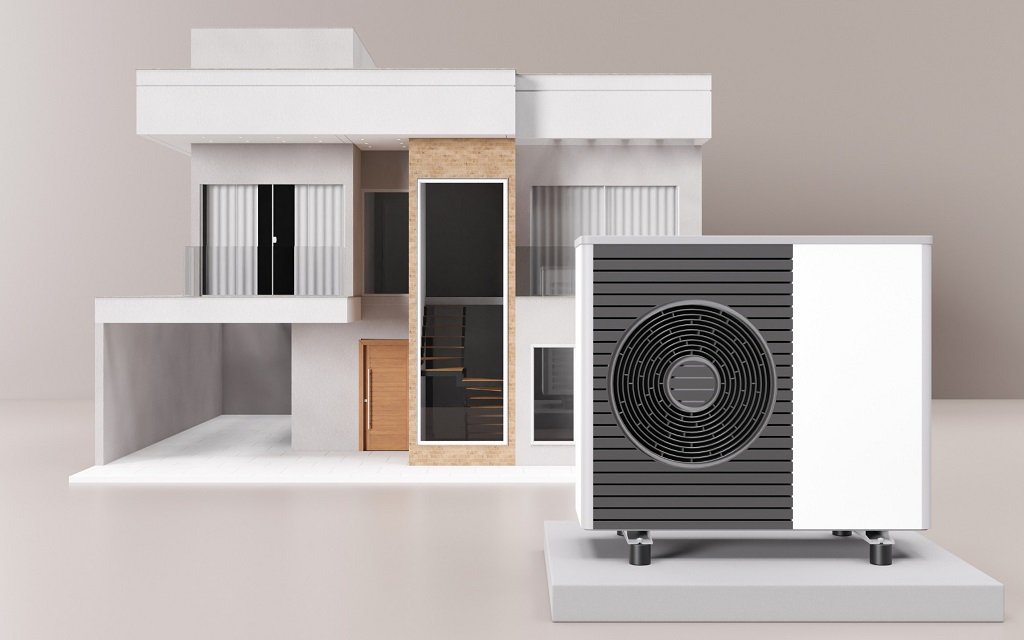The Heating, Ventilation, Air Conditioning, and Refrigeration (HVACR) industry is undergoing a remarkable transformation, bringing unprecedented comfort, efficiency, and sustainability to homeowners. These collective advances underscore a drive towards smarter, greener, and healthier HVACR systems, which is reshaping the industry’s landscape.
Being well-versed on these trends can empower homeowners to make informed decisions that will enhance the comfort of their interior living spaces, while lowering their household expenses and contributing to a more sustainable, eco-friendly future.
In this article, we delve into insights from a recent HVACR industry report, the AHR 2024 Trend Report, that are of highest concern to homeowners within the United States.
5 HVACR Trends for Homeowners
- Improving Energy Efficiency
- Prioritizing Indoor Air Quality & Comfort
- Making Technology Smarter & Easier to Use
- Pushing Incentives Towards Electrification
- Growing Concerns Over Knowledge Gaps
Also see:
1. Improving Energy Efficiency
Market demand for ever-improving energy efficiency continues to be the primary driver behind most, if not, all innovation in the HVACR industry.
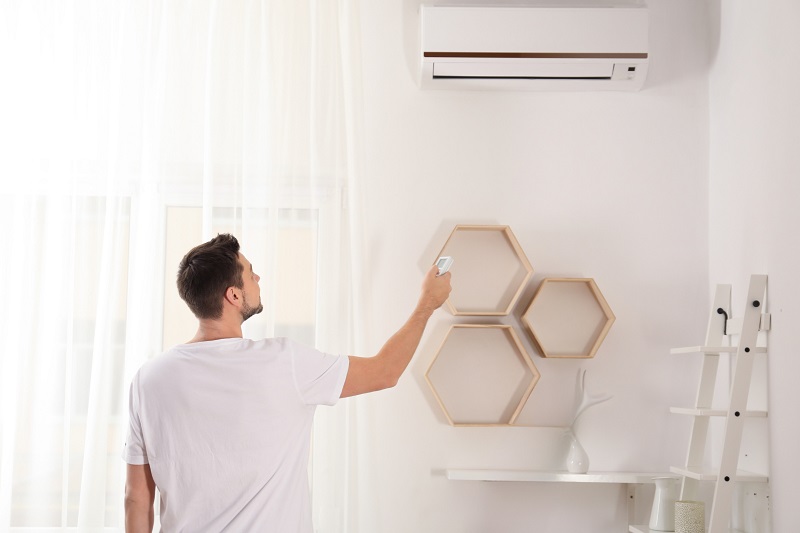
Federal, state and local governments, as well as utility companies, continue to provide financial incentives for homeowners, as well as real estate firms and investors, to adopt “cleaner”, more efficient heating and cooling products.
In parallel, manufacturers have competitive incentive to make their products and systems cost less to run and maintain, as well as last longer.
Lastly, property owners, both commercial and residential, have growing needs to use systems that curtail unpredictable spikes in energy costs, while also enhancing air quality and comfort.
Pertaining to energy efficiency trends, the AHR report cited a survey conducted by Midea America, Coyne Public Relations and Atomik Research group, which revealed:
- 76% of homeowners agree that they are more focused on energy efficiency now than they were 5 years ago
- 62% of homeowners are looking into environmentally responsible/energy-saving solutions around the house
A key driver of improved energy efficiency is the proliferation of modern inverter heat pumps in HVAC systems. An inverter heat pump is a heat pump that can operate at multiple/variable speed settings, as opposed to the two basic states of traditional furnaces: On or Off.
HVAC systems that utilize an inverter mechanism (drive or compressor) are also referred to as Smart Systems, as the adaptive variable speed capability of the system can intelligently respond to sensor inputs.
The efficiency of this type of system is largely due to not having to having to shut-off and then restart to adjust the temperature. System start cycles consume more energy and cause more mechanical wear-and-tear on system parts, which lead to shorter lifespans.
Nearly all mini split systems on the market today, by the way, feature inverter technology.
Further, multi-zone HVAC systems allow homeowners to control the temperature in different areas of their homes independently. With this type of system, homeowners can additionally enhance energy efficiency by heating or cooling only areas of the home that are in use.
Heat pumps save energy because transferring heat is easier than making it. Under ideal conditions, a heat pump can transfer 300%, or 3 times, more energy than it consumes. In contrast, a high-efficiency gas furnace is only about 90% efficient.
2. Prioritizing Indoor Air Quality (IAQ) & Comfort
Indoor Air Quality (IAQ) is crucial for maintaining a healthy indoor environment, by reducing allergens and preventing respiratory issues.

Over recent years, both the commercial and residential real estate markets have become increasingly aware of the critical link between HVACR systems and human health, specifically Indoor Air Quality. IAQ is part of the larger architectural/interior design trend of wellness-focused designs being applied to both residential and commercial spaces.
In the residential market, homeowners are looking for systems that help mitigate the following types of respiratory health issues:
- Allergies
- Asthma
- Pet Dander
- Environmental Events, such as Wild Fires
- Gas Stove Emissions
Homeowners should start inquiring about Indoor Air Quality assessments from local contractors, as more members of the HVAC professional community are responding to this growing market need. In tandem, HVAC service firms can provide upgraded equipment and best-practices maintenance plans that can adequately address these wellness concerns.
Comfort Features
A common HVAC challenge of households with multiple residences (even just two) is being able to adjust indoor temperatures conveniently and effectively to the preferences of most, if not all inhabitants. Key methods that help address these types of situations are personalized settings via smart controls and zoning.
Variable speed inverter heat pumps offer several benefits in terms of home comfort:
- More Consistent Temperatures
- Quieter Operational Noise
- Prevention of Extreme Bursts of Air
- Elimination of Wide Temperature Swings
- Operational in Smaller, Harder-to-Reach Spaces
Multi-zone systems offer further comfort by allowing residents to customize temperature settings per zone tailored to individual preferences. A popular example of a multi-zone solution is ductless mini-splits.
Key features and capabilities to research and compare for optimal IAQ and comfort settings include:
- Ventilation
- Filtration
- Humidity Control
- Air Purification & Disinfection
- Automated Monitoring
Johnson Controls, for example, offers a range of options to improve IAQ, including advanced, high-MERV air filters, ultraviolet air purifiers, humidifiers and dehumidifiers. Their IAQ products can help reduce airborne contaminants inside homes and reduce environmental triggers for those with allergies and asthma.
3. Making Technology Smarter & Easier to Use
Not surprisingly, homeowners are also seeking smart and connected HVACR systems that enable remote monitoring, predictive maintenance and automated energy optimization. For example, the integration of artificial intelligence and machine learning with real-time data analytics is set to revolutionize system efficiency by analyzing data patterns to make real-time adjustments and provide prescriptive maintenance solutions.
Ultimately, smarter HVACR technology, from advanced thermostats to mobile apps to state-of-the-art ventilation systems, is empowering homeowners to create automated and personalized environments that cater to their specific needs, while conveniently lowering operational costs and extending equipment lifespans.
4. Pushing Incentives Towards Electrification
Federal and regional tax incentive programs, such as the Inflation Reduction Act, are becoming an important purchase-decision factor due to the significant cost savings opportunities they offer homeowners. According to the survey conducted by Midea America, Coyne Public Relations and Atomik Research group:
- Two-thirds of homeowners (68%) are more likely to consider heat pump installations when they learn about these incentives
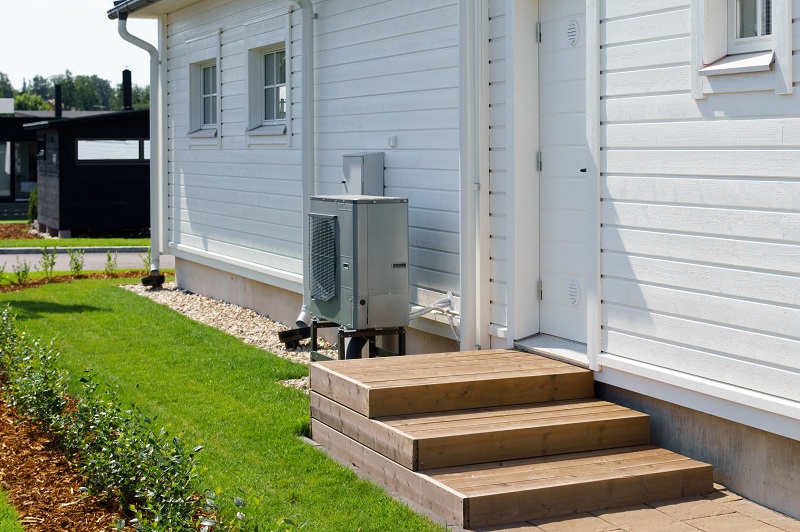
Many other electrification incentives exist, in parallel, such as rebates up to $4,000 (based on median household income) for electric panel upgrades required to electrify a residence fully.
However, homeowners need to weigh these incentives for their specific personal needs, homes and climate zones. Though heat pump technology is certainly improving, homeowners in colder climates should always plan their systems to be able to handle worst-case scenarios, such as considering a dual fuel source system.
Some form of backup or supplemental heat can serve as a safety net when heating demands exceed capacity, such as when the outdoor temperatures are too cold for a heat pump to run efficiently.
Homeowners should also stay abreast of new state and local regulations pertaining to fuel-sourced HVAC systems to anticipate options when planning upgrades or when purchasing a new home. While some states (e.g. California) and local cities (e.g. Berkeley, California) have proactively planned the sun-setting of fuel-based HVAC systems, other states have protected the rights of homeowners to choose their fuel source. According to HARDI:
- Nearly half the country has passed state-wide prohibitions on local gas bans
5. Growing Concerns Over Knowledge Gaps
A critical challenge for the HVACR market is the continual need for both contractors and consumers to stay abreast of current capabilities, tax incentives and best-suited options.
Key knowledge gaps pertaining to the latest HVACR technology and products can be grouped into three categories:
Current Heat Pump Capabilities
HVAC Excellence, an HVAC standards organization, shared in the AHR report that there is consensus across the industry that the initial introduction of heat pumps to consumers during the 1970s and 1980s faced limited acceptance due to their inadequate performance, combined with a lack of awareness.
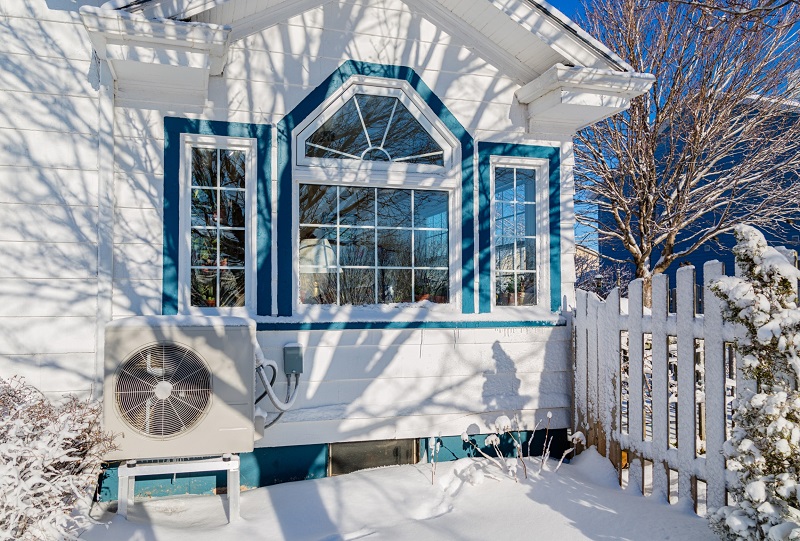
However, new lines of inverter driven heat pumps have the capacity to provide efficient heating in cold climates while keeping homes comfortable. In short, the latest generation of environmentally conscious homeowners presents a ripe opportunity for heat pumps to be reintroduced successfully with responsible marketing and education. Since heat pump technology has advanced beyond the public’s knowledge, bridging this perception gap is essential to drive adoption.
The report shared survey findings that underscore the current knowledge gap on current heat pump technology for not only homeowners, but for industry professionals, as well:
- 80% of homeowners claim to know what a heat pump is despite over half being unsure about its capabilities, particularly its ability to provide both heating and cooling
- More than half of homeowners surveyed (54%) believe that today’s advanced heat pumps can only generate 100% heat output at temperatures down to 32°F or 40°F
- 96% of homeowners are NOT aware that today’s advanced heat pumps can generate 100% heat output to a minimum temperature of -4°F
- 70% of contractors are NOT aware that today’s advanced heat pumps can generate 100% heat output to a minimum temperature of -4°F
- 87% of contractors say they would be more likely to consider switching to a heat pump in their own homes after learning more about the performance and cost-saving benefits of advanced heat pumps
- 92% of contractors are open to learning more about today’s more efficient heat pump systems to improve installation time and customer satisfaction
Industry Challenges
While new heat pump technologies and capabilities are creating new opportunities for members of the industry, homeowners will need to be astute at judging if contractors have sufficient knowledge, skills and experience for installing and maintaining these new types of systems and products.
When hiring HVAC service professionals, homeowners should be aware of the following industry challenges to assess how prospective contractors are addressing the following challenges:
- Many contractors continue to face an increased workload with fewer contractors on the job
- As buildings and homes become more technologically advanced, the demand for skilled and adaptive HVACR professionals will increase
- Innovative service firms are needing to hire outside the HVACR industry by investing in special on-boarding and training programs
- Prior to adopting new products and technology, experienced professionals need sufficient confidence in how to best install and maintain these systems, including assurance of adequate training and seamless access to parts and diagnostic support
The good news is that forward-looking manufacturers in the HVACR space understand these needs of their service partners and are addressing them. Johnson Controls, for example, is providing innovative ways to help HVAC professionals perform at high standards, by enabling them to be more knowledgeable with mobile access to precise up-to-date product information and diagnostic videos.
Compliance with Government Incentive Programs
Contractors need to understand the nuances and complexities of how various incentive programs work, such as the IRA, so that they can be properly educate their customers. The report also shared that there are many concerns from both contractors and homeowners over the details of these programs, such as qualifications and how reimbursements on upfront investments are facilitated.
About the AHR 2024 Trend Report
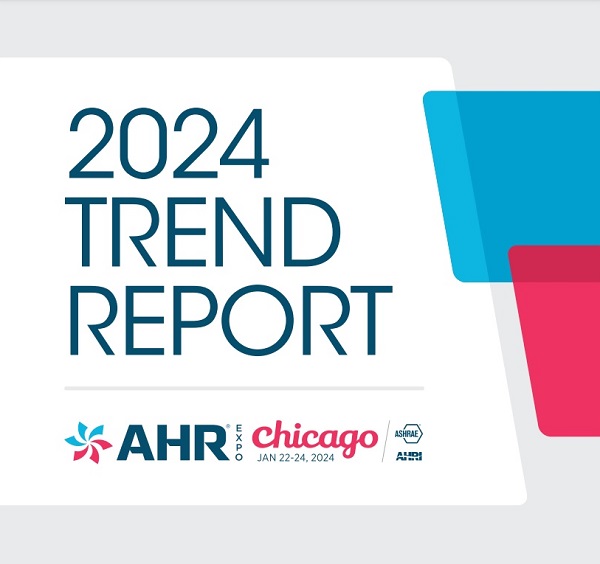
Insights and feedback from the following HVACR industry organizations and persons were incorporated into the AHR 2024 Trend Report:
- AHRI: Air-Conditioning, Heating, and Refrigeration Institute
- ASHRAE: The American Society of Heating, Refrigerating and Air-Conditioning Engineers
- ASHB: Association for Smarter Homes & Buildings
- BACnet: Building Automation and Control Network
- HARDI: Heating Air-conditioning & Refrigeration Distributors International
- HVAC Excellence
- IAPMO: International Association of Plumbing & Mechanical Officials
- RPA: Radiant Professionals Alliance
- PHCC: Plumbing-Heating-Cooling Contractors Association
- RSES: Refrigeration Service Engineers Society
- Johnson Controls
- LG Air Conditioning Technologies
- Midea
- Alan Carlson, Plumber
- Craig Migliaccio, President, AC Service Tech LLC
- Rachel Sylvain, CEO and Co-Owner of AGS HVAC Services
Additional Home Wellness Articles
- 6 Reasons Ductless Mini-Split ACs are a Game-Changer for Your Home
- Expert Tips to Lower Your Home’s Heating Bill
- Indoor Air Quality Resources
- UV-C Products to Make Your Home Healthier & Virus Free
- Are Smart Meters Harmful to Your Health?
- 10 Beautiful Houseplants Perfect for Small Rooms and Spaces
- Related Topics: Home Wellness | IAQ | HVAC | Energy Efficiency | Maintenance
| Purgula is reader-supported. When you click on links to other sites from our website, we may earn affiliate commissions, at no cost to you. If you find our content to be helpful, this is an easy way for you to support our mission. Thanks! Learn more. |

